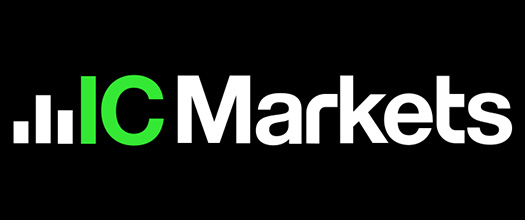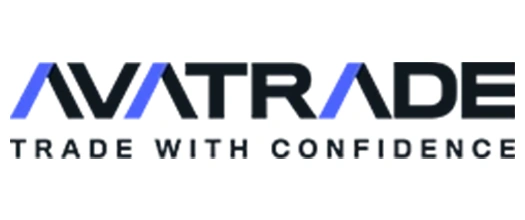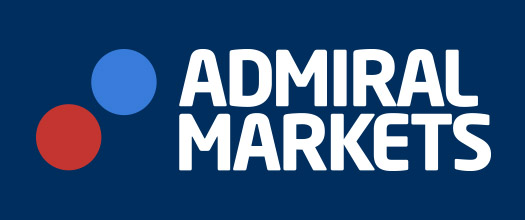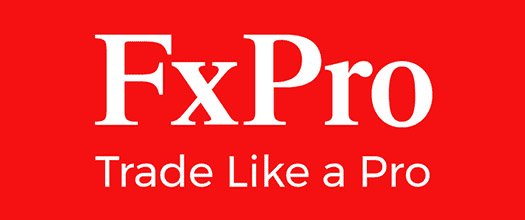- Jump to:
- Main features of the best Sweden Forex brokers
- Forex Brokers in Sweden Compared by Spread
- Account Types and Commissions
- Forex Legislation
- Financial Regulators
- Payment Methods
- Trading Software
- Mobile Trading
- FAQ
Our team of expert traders tested many regulated and trustworthy forex brokers that accept traders from Sweden and compiled a toplist with the best among them. Each broker operating in Sweden received a quality score based on several factors, including Trustpilot rating, regulation, fees and commissions, available trading platforms, customer service and more.
 Fusion Markets74-89% of retail CFD accounts lose money
Fusion Markets74-89% of retail CFD accounts lose money AxiThe vast majority of retail client accounts lose money
AxiThe vast majority of retail client accounts lose money FP Markets73.85% of retail investor accounts lose money
FP Markets73.85% of retail investor accounts lose money Pepperstone75.5% of retail investor accounts lose money
Pepperstone75.5% of retail investor accounts lose money Global Prime74-89% of retail CFD accounts lose money
Global Prime74-89% of retail CFD accounts lose money XM Group72.82% of retail investor accounts lose money
XM Group72.82% of retail investor accounts lose money
Below you can find a comprehensive comparison table of forex brokers for traders in Sweden. We rank them based on several factors including: regulation, spreads and commissions, Trustpilot rating, trading instruments, trading platforms, deposit and withdrawal methods.
Main features of the best Sweden Forex brokers
- Min Deposit$0Trading InstrumentsCFDs, Commodities, Indices, Crypto, US StocksRegulatorsASIC, FSA (Seychelles), VFSC (Vanuatu)Trading PlatformsMetaTrader4, MetaTrader5, cTrader, DupliTrade, Fusion+ Copy Trade, TradingViewSpreadfrom 0.9 pips Classic; from 0.0 pips ZeroLeverage1:30 (1:500 for forex and metals via VFSC)Deposit MethodsVisa, Mastercard, PayPal, Skrill, Neteller, Fasapay, Jeton Wallet, Perfect Money, Online Naira, Doku, Bitcoin, Ethereum, Litecoin, USDT, Tether, Ripple, bank wire, ZotaPay, VNPay, DuitNow, XPay, DragonPay, VAPay, FasaPay, AstroPay, PayID, Jetonbank, Sticpay, Interac, LuqaPay, Zotapay, MiFinityWithdrawal MethodsVisa, Mastercard, Bank Wire, Skrill, Neteller,Bitcoin, Ethereum, Litecoin, Tether, Ripple, MiFinity, Interac, PayPal, AstroPay, Jetonbank, DragonPay74-89% of retail CFD accounts lose money
Traders from Sweden can join Fusion Markets and trade CFD products with zero commission. Operates under licenses from ASIC, FSA (Seychelles), and VFSC (Vanuatu). Tradable markets include Forex, CFDs on Indices, Commodities, Cryptocurrencies, US Shares, and more. Available platforms include MT4, MT4 Mobile App, WebTrader for MT4, and MT5. Maximum leverage on tradable products for retail Swedish players is capped at 1:30.
- Min Deposit$50 (AU$100)Trading InstrumentsForex CFDs, Shares CFDs, Metals CFDs, Commodities CFDs, Indices CFDs, Crypto CFDs, ETF CFDsRegulatorsASIC, CySEC, FSA (Seychelles), FSCA, FSA (St. Vincent and the Grenadines)Trading PlatformsMetaTrader4, MetaTrader5, WebTrader, IRESS, cTrader, TradingViewSpread1.0 pips Standard; 0.0 pips RawLeverage1:30Deposit MethodsVisa, Mastercard, Neteller, Bank Transfer, Skill, Sticpay, Fasapay, Virtual Pay, Perfect Money, Pagsmile, Dragonpay, Crypto, Apple Pay, Google Pay, Online Banking, Broker to Broker, PayPal, XPay, RapydWithdrawal MethodsVisa, Mastercard, Bank Wire, Neteller, Skrill, Paytrust88, PayPal73.85% of retail investor accounts lose money
Welcomes traders from Sweden thanks to a CySEC license, authorizing operation on the European market. Other authorities regulating FP Markets include ASIC, FSA (Seychelles), and FSCA. Retail Swedish traders can use leverage of up to 1:30 when trading major currency pairs and 1:20 on minor pairs. In addition to over 60+ currency pairs, the broker offers CFDs on Shares, Indices, Commodities, Metals, Crypto, and ETFs. Tradable products are available on advanced platforms like MT4, MT5, cTrader, TradingView, and WebTrader.
- Min Deposit$0Trading InstrumentsCryptocurrencies, Indices, Commodities, BondsRegulatorsASIC (No. 385620), VFSC (No. 40256)Trading PlatformsMetaTrader4, MT4 Webtrader, MT4 Android, GP CopySpread0.9 pips Standard, 0.0 pips RawLeverage1:500 (1:30 for ASIC entity)Deposit MethodsVisa, Mastercard, PayPal, Skrill, Neteller, Gate8, Dragonpay, Fasapay, VNPay, Pagsmile, BPay, POLi, AstroPay, Bank Transfer, Interac, Perfect Money, PayID, Jeton, MiFinity, XPay, CryptoWithdrawal Methods
Mastercard, Visa, Local Bank Transfer, Bank Wire Transfer, Skrill, Neteller, AstroPay, PayPal, Dragonpay, Perfect Money, Jeton, Interac, Cryptocurrencies
74-89% of retail CFD accounts lose moneyForex and CFD trading easily available to Swedish traders. Operates thanks to licenses from ASIC and VFSC. Leverage on products offered to retail Swedish traders ranges between 1:2 (crypto CFDs) and 1:30 (major forex pairs). In addition to Forex, other available markets include Indices, Commodities, Crypto CFDs, and Bonds CFDs. Currently, the broker supports only MT4 but has plans for the launch of additional trading platforms.
- Min Deposit$0Trading InstrumentsForex, Indices, Commodities, Cryptocurrencies, Share CFDs, ETFsRegulatorsUK FCA (No.684312), CySEC (No. 388/20), ASIC (No. 414530), BaFin (No.151148), DFSA, CMA, SCB (Bahamas)Trading PlatformsTradingView, MetaTrader4, MetaTrader5SpreadFrom 0.0 pips (Razor Accounts), 1 pip (Standard Accounts)Leverage1:30Deposit MethodsVisa, Mastercard, PayPal, Bank Transfer, BPay, Neteller, SkrillWithdrawal MethodsVisa, Mastercard, PayPal, Bank Transfer, BPay, Neteller, Skrill75.5% of retail investor accounts lose money
Welcomes traders from Sweden thanks to licenses from several major regulators in Europe. Authorized to offer trading services by the FCA, BaFin, CMA, DFSA, and ASIC. Swedish retail traders have access to additional investor protection tools and will have a cap on the allowed leverage of up to 1:30 (on forex pairs). Through platforms like MT4, MT5, cTrader, and Pepperstone’s very own native platform one can trade forex pairs, indices, commodities, cryptocurrencies, and more.
- Min DepositStandard Account: $1,000; Premium Account: $10,000; Prime Account: $50,000Trading InstrumentsForex, Commodities, Stocks, Crypto, ETFs, Bonds, CFDs, Options, Futures, Mutual Funds, IndicesRegulatorsFCA, MFSA, FINMA, DFSA, MAS, CySEC, FSC, FSCATrading PlatformsCFXD, MetaTrader 4, MetaTrader5SpreadFrom 1.7 pips (Standard), 1.4 pips (Premium), 1.1 pips (Prime), 0.0 pips (Elite for EU customers)Leverage1:30 (Europe), 1:100 (International), 1:50 (Middle East), 1:20 (Singapore)Deposit MethodsVisa, Mastercard, Bank Transfer, Online BankingWithdrawal MethodsVisa, Mastercard, Bank Transfer, Online Banking61% of retail investor accounts lose money
Broker licensed by a number of tier-1 regulators, including FCA, FINMA, MFSA, MAS, CySEC, and DFSA. Swedes can manage their payments in SEK and avoid currency conversion fees. Offers various leveraged products, with the maximum leverage ratio available to retail Swedish traders being 1:30. Platforms like MT4, MT5, and CFXD allow detailed and smooth trading of forex, precious metals, and a variety of CFDs.
- Min Deposit$200Trading InstrumentsCFDs on Forex, Commodities, Index, Bond, Cryptocurrencies, Stock, FuturesRegulatorsFSA (Seychelles), CySEC, ASICTrading PlatformsMetaTrader4, MetaTrader5, cTrader, ZuluTradeSpread0.8 pips Standard, 0.0 pips Raw AccountsLeverage1:30Deposit MethodsBank transfer, Visa, Mastercard, PayPal, Skrill, Neteller, Visa Direct, SafeCharge, Transact365, eCommPay, CardPay, Bpay, FasaPay, Poli, RapidPay, Klarna, NuveiWithdrawal MethodsBank transfer, Visa, Mastercard, PayPal, Skrill, Neteller, Visa Direct, SafeCharge, Transact365, eCommPay, FasaPay, Poli, RapidPay, Klarna70.64% of retail investor accounts lose money
Swedish traders can open different account types at IC Markets. Broker’s operations are regulated by the FSA (Seychelles), CySEC, and ASIC. Negative balance protection and other investor protection tools are available to retail Swedish traders. Thanks to the Raw Spread account option, forex traders may enjoy spreads as low as 0.0 pips. Supported trading platforms include MT4, MT5, and cTrader – allowing access to markets like Forex, Indices CFDs, Commodities CFDs, Crypto CFDs, and a wide range of other CFD products.
- Min Deposit$100Trading InstrumentsForex, Major stock indices, Cryptocurrencies, Commodities, Bonds, Individual Shares, ETFsRegulatorsFFAJ (License No.1574),CySEC (No. 347/17) ISA (No. 514666577), IIROC, ADGM / FSRA (No.190018), CBI (No.C53877), BVIFSC (No. SIBA/L/13/1049), FSCA(No.45984), ASIC (No.406684), JFSA (No. 1662)Trading PlatformsMetaTrader4, MetaTrader5, WebTrader, AvaTadeGO, AvaSocial, AvaOptions, DupliTradeSpreadFrom 0.9 pips (retail), 0.6 pips (pro)Leverage1:30Deposit MethodsVisa, Mastercard, Skrill, WebMoney, Neteller, bank wireWithdrawal MethodsVisa, Mastercard, Skrill, WebMoney, Neteller, bank wire76% of retail investor accounts lose money
Offers seamless trading for Swedes, with Swedish being among the platform’s supported languages. The broker allows trading forex pairs, stocks, commodities, indices, and other instruments in the form of CFDs. Platforms available to Swedish traders include MT4, MT5, and WebTrader, as well as AvaSocial and DupliTrade, which are perfect options for copy trading. The Spread on major pairs like EUR/USD ranges around 0.9 pips, with professional traders being able to reduce the spread to 0.6 pips.
- Min Deposit$100 ($1 for Invest MT5 Account)Trading InstrumentsCFDs on Forex, Indices, Stocks, Commodities, Bonds, ETFs, CryptocurrenciesRegulatorsCySEC (No. 201/13), ASIC (No. 410681), FCA (No. 595450), JSC (No. 57026), FSCA (No. FSP51311), EFSA (No. 4.1-1/46), CMA (No. 178), CIRO, FSA (No.SD073)Trading PlatformsMetaTrader4, MetaTrader5, WebTrader, MT Supreme Edition, StereoTraderSpreadFrom 0.0 pips (Invest and Zero Accounts), 0.5 pips (Trade Accounts)Leverage1:30Deposit MethodsVisa, Mastercard, Skrill, Klarna, Bank Transfer, PayPal, Neteller, iDeal, POLi, Perfect Money, CryptocurrenciesWithdrawal MethodsBank transfer, Visa, Mastercard, PayPal, Neteller, Skrill, Perfect Money73% of retail investor accounts lose money
Swedish-friendly broker, regulated by CySEC, ASIC, FCA, JSC, and FSCA. Offers over 4,000 CFD products, including CFDs on major forex pairs and popular cryptocurrencies. Fast execution on most orders. CFD trading available on various trading platforms, including MT4 and MT5. No commission charged on CFD trades carried out through standard accounts. Zero accounts offer spreads as low as 0.0 pips on major pairs but impose a commission of $3 per lot traded per side.
- Min Deposit$100Trading InstrumentsForex CFDs, Commodity CFDs, Shares CFD's, Index CFDs, Crypto CFD'sRegulatorsSCB (No. SIA-F220), ASIC (No.391441), CySEC (No. 246/14), FCA (No. 921296)Trading PlatformsMetaTrader4, MetaTrader5, WebTrader, TradingView, Capitalise.ai, FlashTraderSpread0.1 pips on Standard and TradingView Accounts; 0.0 pips Raw AccountsLeverage1:30Deposit MethodsVisa, PayPal, Mastercard, Wire Transfer, Neteller, Skrill, Tether, Bitcoin, BPAY, Dragonpay, Fasapay, Interac, Pix, UnionPayWithdrawal MethodsMastercard, Visa, PayPal, Skrill, Neteller, Bitcoin, Tether, Wire Transfers, BPAY, Fasapay, Pix, Interac, UnionPay76.09% of retail investor accounts lose money
Licensed and regulated by SCB (Bahamas), ASIC, FCA, CySEC, and FSA (Seychelles), the broker welcomes traders from Sweden. Trading of forex CFDs, Commodity CFDs, Crypto CFDs, and other CFD instruments is possible through platforms like MT4, MT5, and WebTrader. The spread on EUR/USD and other major pairs starts from 0.0 pips (Raw account) or 1 pip (Standard account). Commissions are charged only on Raw account trades, incurring a $7 round trip commission per lot.
- Min Deposit$100Trading InstrumentsForex, Shares, Energy, Indices, Futures, MetalsRegulatorsFCA (No. 45052), CySEC (No. 078/07), SCB (No. SIA-F184), FSCA (No.45052)Trading PlatformsMetaTrader4, MetaTrader5, cTrader, FxPro Edge (proprietary), ProprietarySpread0.0 pips (Raw, Elite), 1.2 pips (Standard)Leverage1:30Deposit MethodsVisa, Mastercard, Maestro, Bank Transfer, Neteller, PayPal, Skrill, Union PayWithdrawal MethodsBank Transfer, Mastercard, Visa, Union Pay, Maestro, PayPal, Skrill, Neteller74% of retail investor accounts lose money
Swedish traders are welcomed at FxPro, having the option to load the website in their native language. The broker operates with licenses from CySEC and FSCA, with Swedish traders having a cap on leveraged products (1:30) due to regulations that apply to European customers. Traders have access to forex and CFD trading through platforms like MT4, MT5, WebTrader, and FxPro’s dedicated platform for desktop and mobile devices. The average spread on EUR/USD (most-traded pair) ranges around 0.48 pips (cTrader account), 1.47 pips (MT4 and MT5), and 1.9 pips (MT4 Fixed).
Forex Brokers in Sweden Compared by Spread
| Broker | EUR/USD | USD/JPY | GBP/USD | USD/CHF | AUD/USD | EUR/GBP | USD/CAD |
|---|---|---|---|---|---|---|---|
| 1. Admirals | 0.1 | 10 | 1.00 | 1.2 | 0.4 | 0.00003 | 1.1 |
| 2. FxPro | 0.25 | 0.38 | 0.37 | 0.4 | 0.4 |
| 0.86 |
| 3. IC Markets | 0.8 | 0.8 | 0.8 | 0.8 | 0.8 |
| 0.8 |
| 4. AvaTrade | 0.9 | 1.3 | 1.3 | 1.3 | 1.1 | 1.2 | 1.8 |
| 5. Fusion Markets | 0.93 avg (Classic) | 1.7 avg (Classic) | 1 avg (Classic) | 1.7 avg (Classic) | 0.91 avg (Classic) | 1.09 avg (Classic) | 0.99 avg (Classic) |
| 6. Global Prime | 0.96 avg (Standard) | 1.47 avg (Standard) | 1.12 avg (Standard) | 1.24 avg (Standard) | 0.98 avg (Standard) | 1.19 avg (Standard) | 1.16 avg (Standard) |
| 7. Pepperstone | 1.00 (min) | 1.0 | 1.00 (min) | 1.1 | 1.2 | 1.2 | 1.42 |
| 8. Eightcap | 1.00 (min) | 1.1 | 1 | 1.4 | 1.2 | 1 | 1.2 |
| 9. FP Markets | 1.1 | 0.30 | 1.2 | 1.8 | 1.2 | 0.20 | 1.5 |
| 10. Swissquote | 1.7 | 1.6 | 2.0 | 2.0 | 1.6 | 1.7 | 2.7 |
Account Types and Commissions
| Broker | Min Deposit | Account Types | Commission per Lot | Trustpilot Rating |
|---|---|---|---|---|
| 1. Fusion Markets | $0 | Zero, Classic, Islamic, Demo, Professional | $0 Classic Account, $4.50 round turn on Zero Account | 4.9 |
| 2. FP Markets | $50 (AU$100) | Standard, Raw, Demo, Professional, Islamic | $0 Standard Account; $6 round turn on Pro Account | 4.6 |
| 3. Pepperstone | $0 | Standard Account, Razor Account | $0 (Standard Account), $7 round-turn (Razor Account) | 4.5 |
| 4. Global Prime | $0 | Standard, Raw, Demo, Professional | $0 Standard Accounts; $7 round turn on Raw Accounts | 4.4 |
| 5. IC Markets | $200 | Raw Spread cTrader, Raw Spread MT, Standard MT | $0 Standard MT; $6 round turn on Raw cTrader; $7 round turn on Raw MT | 4.3 |
| 6. AvaTrade | $100 | Retail, Professional, Islamic, MAM | $0 | 4.3 |
| 7. Eightcap | $100 | Standard, Raw, TradingView Account | $0 on Standard and TradingView Accounts; $7 round turn on Raw Accounts | 4.2 |
| 8. FxPro | $100 | Standard Account, Raw+ Account, Elite Account | $0 on Standard Account; $3.5 per side on Raw+ and Elite Accounts | 4.0 |
| 9. Admirals | $100 ($1 for Invest MT5 Account) | Trade (Standard), Invest (MT5), Zero | $3 per lot | 3.9 |
| 10. Swissquote | Standard Account: $1,000; Premium Account: $10,000; Prime Account: $50,000 | Standard, Premium, Prime, Elite |
| 3.7 |
Located in Northern Europe, Sweden is a wealthy Scandinavian nation with a developed open-market economy aided by the exports of resources like iron ore, hydro-power, and forestry whose value accounts for one-third of the country’s gross domestic product (GDP).
Swedes enjoy a high standard of living, with a GDP per capita of US$57,232 as of 2018, which is among the highest in the European Union. The Nordic country has also established itself as a global leader in technological innovations. It has birthed many tech giants over the years, including Skype Technologies, Spotify, and the fintech platform Klarna.
The country became a member state of the EU in 1995 but continues to use the Swedish krona (SEK) as its official currency. The krona boasts a strong presence on the global foreign exchange markets and accounted for 2.2% of the overall Forex turnover as of 2016. SEK has been floating freely against other currencies since 1992, with the central bank Sveriges Riksbank intervening at times to stabilize its rates.
Sweden’s market-oriented economy, national wealth, well-educated workforce, and love for innovations have transformed it into an attractive destination for international investors and brokers alike. The high standard of living has given rise to a thriving foreign exchange market an increasing number of Swedes are willing to participate in.
As a result, many international brokerage firms are looking to grab a slice of the local Forex market. Although the country has one of the most active trading scenes in the industry, very few brokers actually hail from Sweden. Most of the Forex companies with a presence in Sweden are actually based in other jurisdictions but operate locally with the authorization of Sweden’s financial watchdog.
Sweden Forex Legislation
Forex brokers can legally accept trades from Swedish residents as long as they obtain licenses from the local financial watchdog Finansinspektionen, i.e. the Financial Supervisory Authority of Sweden. As part of the European Union, Sweden has aligned its regulatory framework with the Markets in Financial Instruments Directive (MiFID), which harmonizes the regulations of financial services across all member states of the EU.
Under this piece of legislation, brokerage firms licensed in an EU country can legally service clients from all other member states. Because of this, some of the companies operating on the Swedish market are actually licensed and registered in other countries like Cyprus or the UK.
Residents of the Nordic country can legally trade spot Forex but purchasing contracts for difference (CFDs) from authorized brokerages is possible. In July 2019, Sweden adopted the guidelines proposed by the EU financial regulatory agency ESMAunder the MiFID. There are several conditions licensed derivative providers must meet according to the new set of rules.
Licensed brokers on the Swedish market can sell leveraged CFDs for Forex currency pairs, equity indices, shares, and hard commodities like gold. Under the new measures, retail customers must pay initial margin protection upon entering a contract for difference.
Clients are also entitled to negative balance protection on a per-account basis. This ensures they do not lose more than the balance they have available in their live accounts when the markets move unexpectedly in an adverse direction. Under this policy, when a trader’s balance goes in the red, the licensed brokerages must restore it to zero at no extra cost. However, professional traders are exempt from negative balance protection.
Another measure entitles retail customers to a margin close-out protection. Thus, if the customer’s account drops below 50% of the minimum initial required margin, the broker must close their open positions to prevent the margin from falling to zero. Respectively, the customer has the option to top up their balance if they want to do so.
Licensed brokers that operate on the Swedish market must also display standardized risk disclaimers on their websites. This is to warn retail customers about the risks involved in leveraged products like the CFD. The brokers must regularly calculate what percentage of their retail customers lose money when trading with leveraged products and publish the updated results on their websites.
There are also caps on the maximum leverage retail customers can use which coincide with those proposed by the EU regulator. The restrictions depend on the volatility of the underlying assets as follows: 30:1 for major Forex pairs (the ones that contain USD, EUR, JPY, GBP, CHF, and CAD), 20:1 for minor/exotic pairs, major indices, and gold, 10:1 for other commodities and non-major indices, 5:1 for individual equities, and 2:1 for cryptocurrencies.
Similarly to other EU countries that fall under the scope of ESMA, Sweden restricts the promotional incentives brokers can offer to local retail CFD traders.
Sweden Financial Regulators
The financial regulator of Sweden is called Finansinspektionen (FI), or the Swedish Financial Supervisory Authority in English. Founded in 1991, the FI has its headquarters in the Swedish capital of Stockholm and accounts to the Ministry of Finance.
The FI was established to create a single unified regulator across all financial sectors, including banking, securities, and insurance. It resulted from the merger of two former supervisory entities, the Insurance Supervision Authority and the Swedish Bank Inspectorate. The FI has a board of eight members who are appointed by the country’s government.
The agency is tasked with the oversight of all organizations that offer financial services in the country and that includes foreign exchange brokerages. The regulator also has the responsibility of ensuring the stability of the local financial markets and the compliance of all market participants with its guidelines.
It works to ensure sufficient levels of protection to consumers who trade with financial products like Forex. The FI also issues licenses to brokers looking to provide their services on Swedish territory. The agency is known to have launched crackdowns on companies servicing Swedish customers without any authorization.
Since Sweden is a member of the EU, it allows foreign brokers with licenses from other EU-based regulators to offer their products to the local public. Companies authorized by the FI can, in turn, do the same.
Sweden Forex Payment Methods
All good Sweden-friendly brokers cater to local customers by offering them a diverse choice of trading account types, including mini, micro, standard, and professional accounts. Most account types can be given a test drive in a demo format where virtual credits are used for trading instead of actual cash. Swedes who feel ready to commit with real money will have to consider a suitable payment method to fund their live accounts with.
The best brokers on the Swedish market are known to provide customers with a comprehensive range of banking solutions. According to data compiled by the statistics portal Statista, credit and debit cards top the list of Sweden’s most preferred online payment methods in 2019, accounting for approximately 33% of all web purchases during the year.
In line with these figures, most brokers on the local market support deposits with Visa, Visa Electron, Maestro, American Express, Diners Club International, and Mastercard. Swedish traders are keen on cards because using this method is safe, easy, and quick.
Bank transfers are also broadly available across brokerages to the advantage of Swedish traders who do not own a credit or a debit card. While the transfer can be initiated in person at the bank, the more convenient and time-efficient alternative would be to use your online banking account.
Many Sweden-friendly brokers work with third-party payment services companies that act as mediators between their banks and the banks of traders. One prime example is the Swedish fintech company Trustly whose services are also available across other Scandinavian countries like Finland, Denmark, and Norway.
To process a payment with this platform, traders must provide their banking credentials to Trustly, which, in turn, would carry out the money transfer on their behalf. Registration for the service is unnecessary.
Trustly is an incredibly secure way to conduct online transactions and is also regulated by the Swedish Finansinspektionen. A trader can use it as long as they have an account at a supported Swedish bank.
One advantage from the perspective of brokerage firms is that it is impossible to reverse Trustly transactions. This minimizes the risks of the brokerages not getting paid.
Many Sweden-friendly Forex trading providers also allow for payments with Klarna. This method is similar to Trustly in that it enables traders to deposit directly from their bank accounts.
Klarna is extremely popular in the Scandinavian region although its services are also available outside Europe, including in countries like the United States and Australia. E-wallets like PayPal, Skrill, Neteller, and WebMoney are also broadly offered to Forex traders from Sweden.
Popular Trading Software in Sweden
The majority of brokers that accept trades from Swedish customers prefer to utilize MetaTrader 4 (MT4). This third-party trading platform was created by MetaQuotes Software, a Russian company whose main offices are registered in the Republic of Cyprus.
The MT4 software is by and large considered a standard in the trading industry. It manages to retain its user-friendliness while at the same time offering additional functionalities and tools for charting and market analysis.
Also featured on the platform are special programs called Expert Advisors. Users can implement them to explore new trading opportunities based on individual market parameters of their choice. Once an Expert Advisor finds a financial market that corresponds to the stipulated parameters, it either notifies the trader or automatically opens a trading position for them, a practice called automated trading.
MT4 is compatible with all major mobile and desktop operating systems, including Android, iOS, Microsoft Window, and Mac. The platform is available in thirty or so languages, including Swedish. Many brokers offer it concurrently with the more advanced MetaTrader 5 (MT5).
Both MetaTrader 4 and MetaTrader 5 are available via a web-based interface to the benefit of Swedish traders who do not want to download and install additional software packages on their desktop computers.
The Sirix WebTrader, cTrader, and ZuluTrade are other broadly adopted trading platforms traders from Sweden are likely to encounter. Some brokerages prefer to develop proprietary trading platforms but their number pales in comparison to those who use the MetaQuotes software.
Mobile Trading in Sweden
As one of the most prosperous countries in Europe, Sweden boasts a very mature mobile market with a high percentage of mobile subscribers. The country is yet to launch a commercial 5G network. For the time being, Swedish mobile users rely on a rather decent 4G connection with an availability of over 87%. The average 4G speed in the country approximated to 27.64 Mbps in 2017.
Swedes use their smartphones for all kinds of activities, from restaurant-hunting and online shopping to emailing and browsing. Traders from the country are also part of this mobile frenzy. Luckily, most brokers on the local market offer sophisticated apps that enable Swedish customers to carry their trading portfolios in their pockets, so to speak.
The apps are commonly compatible with major operating systems like iOS and Android and offer tons of benefits to local traders. Smartphone users can check their open positions whenever they like and keep a close watch on all price developments. Yet, there is more to mobile Forex apps than trade execution.
The best brokers on the Swedish market provide mobile software that can challenge their desktop platforms in terms of functionalities. Traders have instant access to the latest economic trends and financial news releases.
This is very important because economic news are among the biggest catalysts for short-term market price fluctuations, especially where currency pairs are concerned. Keeping track of the latest news can help you effectively decide what positions to take.
Smartphone traders from Sweden also have access to a variety of helpful tools for market analysis and trend detection. They can customize their advanced charts on the fly and take advantage of different educational resources that can greatly improve their understanding of the Forex markets.











